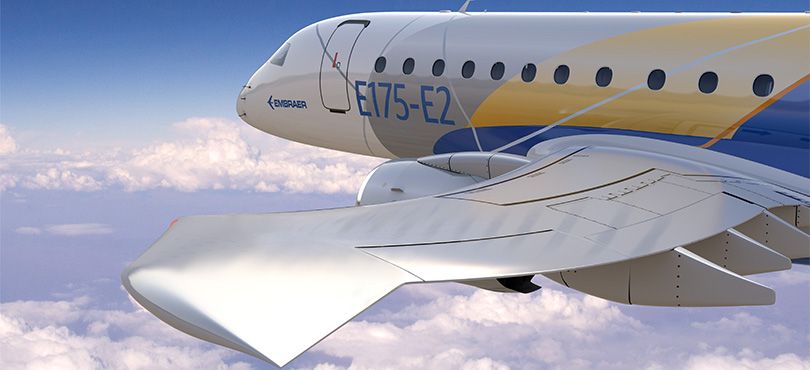Embraer delivered nine commercial aircraft in the third quarter of 2021, bringing it to 32 in the first nine months of the year.
From July to September of the current year, SkyWest Airlines ordered 16 new E175s that will fly for Delta Connection, the regional brand of Delta Air Lines. Deliveries will begin in mid-2022.
Each of these new E175s has 76 seats and will have a three-class configuration.
In addition to flying for Delta, SkyWest also flies the E175 for United Airlines, American Airlines, and Alaska Airlines.
Today, it has 193 E175s in its fleet and another 29 orders. Combining those planes and these 16 new E175s, once delivered, SkyWest will have nearly 240 E175s, the most of any airline in the world.
Also during the third quarter, Embraer announced that E2 officially serves the strategic London City Airport (LCY).
Three months after the European Aviation Safety Agency (EASA) certified the E190-E2 for steep approach operations at LCY in May, Helvetic Airways began operating an E190-E2, the only new generation aircraft operating in the ICAO certified airport.

Its range of 4000 km from LCY is almost double that of the E190.
Now nonstop flights between LCY and distant cities such as Istanbul, Casablanca and Moscow are possible, opening up opportunities for further penetration of the aircraft in the European market.
Embraer
The company delivered its 1500th business jet, a Phenom 300E, on September 3 to the Swiss charter operator Haute Aviation.
This was achieved in less than 20 years, while the industry average to reach this mark is 34 years.
The Phenom 300E with its nonstop range of 2,010 nautical miles (3,724 km), combined with its short runway and climb capabilities, will enable Swiss customers to fly across Europe and around the world.

The Phenom 300E can reach all of Europe from Switzerland with all seats filled faster than any other aircraft in the segment.
On the other hand, on July 14, the company received its first shipment of sustainable aviation fuel (SAF) from Avfuel Corporation for use in Embraer’s operations in Melbourne, Florida.
Each truck (approximately 8,000 gallons) of this fuel provides a 19.1 metric ton reduction in carbon emissions over its life cycle.
This equates to the amount of carbon sequestered by 23.4 acres of US forests per year. SAF generates up to 80% fewer greenhouse gas emissions compared to traditional jet fuel.
![]()

